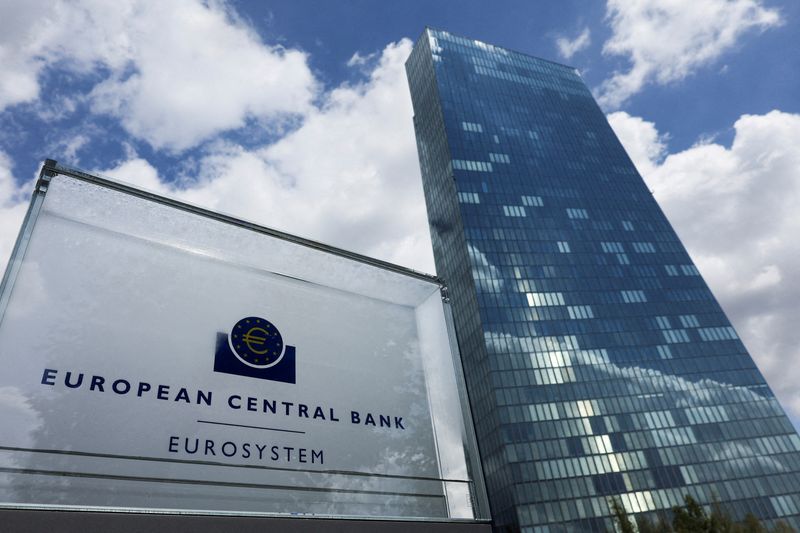By Scott Kanowsky
Investing.com -- The European Central Bank raised interest rates by another 50 basis points on Thursday and flagged its intention to hike rates by the same amount again in March, as policymakers remain focused on corralling elevated inflation despite recent data suggesting that prices may be peaking in the Eurozone.
In a statement on Thursday, the ECB said it would "stay the course" with its recent monetary policy tightening to bring inflation back down to its 2% medium-term target, echoing language used by the central bank's president Christine Lagarde last month.
"In view of the underlying inflation pressures, the Governing Council intends to raise interest rates by another 50 basis points at its next monetary policy meeting in March and it will then evaluate the subsequent path of its monetary policy," the ECB added.
"Keeping interest rates at restrictive levels will over time reduce inflation by dampening demand and will also guard against the risk of a persistent upward shift in inflation expectations."
The decision, which was widely expected by markets, brings the interest rates on the ECB's main refinancing operations, marginal lending facility, and deposit facility up to 3.00%, 3.25%, and 2.50%, respectively. The changes will come into effect from February 8.
Meanwhile, the ECB confirmed its December decision to wind down its asset purchase program by €15 billion (€1 = $1.0938) per month on average from the beginning of March until the end of June 2023.
Lagarde has previously said that inflation in the Eurozone is "way too high," although data this week has helped to fuel investor hopes that these cost-of-living pressures may be beginning to ease. Price growth in the Eurozone slowed by more than expected in January, according to figures from the European Union's statistics agency, as a mild winter supported an easing in monthly energy cost increases.
The bloc's economy has also proved broadly resilient to the pressures brought on by the higher borrowing costs. The Eurozone unexpectedly grew in the fourth quarter, defying expectations that the ECB's aggressive rate hikes in 2022 would spark a deep recession in the near term.
But quarter-on-quarter growth in the final three months of 2022 was only a slight 0.1%, while the headline inflation reading of 8.5% last month is still well above the ECB's 2% target. Meanwhile, a technical problem at Germany's statistics office meant that the currency area's January consumer price index did not include official preliminary data from its biggest economy.
Analysts at ING also predicted that the ECB will continue to hike rates as long as core inflation in the Eurozone remains "stubbornly high." The measure, which strips volatile items like food and energy, was unchanged at 5.2% year-on-year in January.
ECB members will have a chance to parse through further inflation numbers before they make their next policy decision on March 16, with officials keen to learn more about how much price growth is decelerating. Media reports have suggested that support around a smaller rate rise could be starting to gain traction.
Speaking to reporters, Lagarde said there was a "very, very large consensus" around increasing borrowing costs by 50 basis points today and again at its March 16 meeting. But Lagarde denied speculation that the ECB would be finished raising rates beyond its next gathering.
"We know that we have ground to cover, we know that we are not done," Lagarde said.
She added that "[a]s we will receive projections, we will need to assess what rates, what level, at what pace, [...] will be needed" to ensure that inflation cools down to 2%.
The move from the ECB comes after the Federal Reserve pumped the brakes on a period of unprecedented policy tightening on Wednesday, raising borrowing costs by a more modest 25 basis points. But Fed chair Jerome Powell warned that "ongoing increases" would be required to help control inflation.
Additionally, the Bank of England also raised its key interest rate by another 50 basis points on Thursday. It warned that its battle against inflation still is not over as well, but held out the possibility of an end to its policy tightening.
